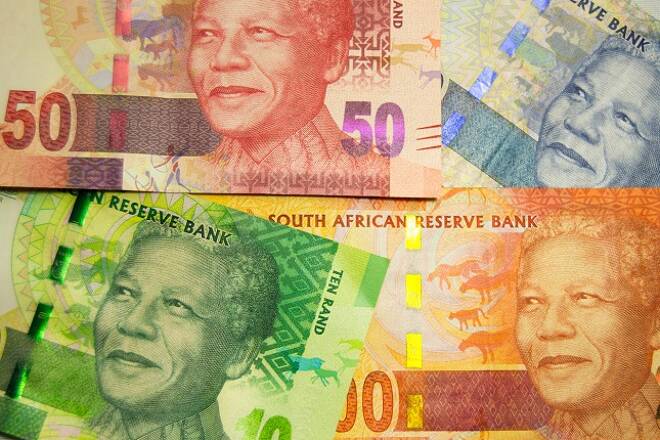Advertisement
Advertisement
No Confidence for Jacob Zuma Equals No Action for the South African Rand
By:
History books are not short of country leaders holding on to their posts, when everything and everyone indicate that they should relinquish power. Back in
History books are not short of country leaders holding on to their posts, when everything and everyone indicate that they should relinquish power. Back in the day, it was difficult and expensive to rally support and a unified voice from the masses, now, however, thanks to the growth of technology and specifically social media, the public have more mediums in which they can freely express their opinions. For the most part, they have been successful at ousting errant leaders but some simply refuse to go.
Freedom House, a U.S based independent watchdog who conducts research and advocacy on democracy, political freedom, and human rights, reported that of 195 countries they assessed, there are as many as 49 nations currently classed as ‘Not Free’, i.e., living under dictatorship without freedom of the press. The majority (87 countries) were rated as ‘Free’, meaning citizens had a say in elections and government. Even though South Africa is reported to be a “free country” President Jacob Zuma and the ANC government have foiled all attempts by the people to oust them. Zuma has survived a remarkable eight votes of no confidence.
Usually, one or two votes of no confidence in a free country are enough to send the message that the person holding office is no longer trusted to carry out his or her duty. Based on that premise, eight votes are more than enough to indicate there are some serious issues in the administration. When votes fail to unseat an unwanted leader, and the status quo, stays intact, it may be time to examine how the electoral system works and the real reason that such an untrustworthy leader still maintains his position.
Zuma has faced multiple allegations of foul play, all three of the biggest rating agencies have expressed their concerns, responding with downgrades for the South African Economy. It’s a reasonable move considering the government’s actions have a direct impact on economic growth, fiscal policy, currency value, and investor sentiment.
Some experts, on the other hand, still carry a torch for the South African economy, refusing to believe that the Rainbow nation’s progress, should be evaluated on currency parity alone, especially since it is so rich in mineral resources. It is estimated to have the world’s fifth-largest mining sector in terms of gross domestic product value and its mining companies are influential players on a global level.
South Africa holds the world’s largest reported reserves of gold, platinum group metals, chrome ore, manganese ore, and the second-largest reserves of zirconium, vanadium, and titanium. Almost all of South Africa’s cement and building materials are made locally and 80% of the country’s steel is manufactured from local iron ore, chrome, manganese and coking coal. Add uranium, silver, pyrite, osmiridium, copper, nickel, chromium, vanadium and andalusite to the mix, and you are looking at some serious mineral and metal credentials. Their reliance on these minerals was highlighted during the period of 2011 to 2015; when the currency dropped in line with a downturn in commodity prices.
Perhaps the fact that South Africa is not the only country going through the political wringer is in its favor – they are not the only country under the spotlight.
Since Zuma took over in 2009, the ZAR dropped 30% in its value. But if we look at the world, to when the Brazilian real jumped 13%- when Dilma Rousseff was overthrown by Michel Temer, then there is hope for the rand to rise with the change of guard. The country’s overall growth prospects are keeping commodity exporters and investors optimistic and the rand resilient. The real llevelerwill come when they have their next round of elections in 2019. Zuma will not be eligible to run for the presidency again, as leaders get a maximum of two terms. If the ANC continues to garner the ire of the people, the entire party will be voted out, which will in all likelihood give the rand a significant boost.
For more market analysis information, visit FXTM
About the Author
Samantha Robbcontributor
Advertisement
